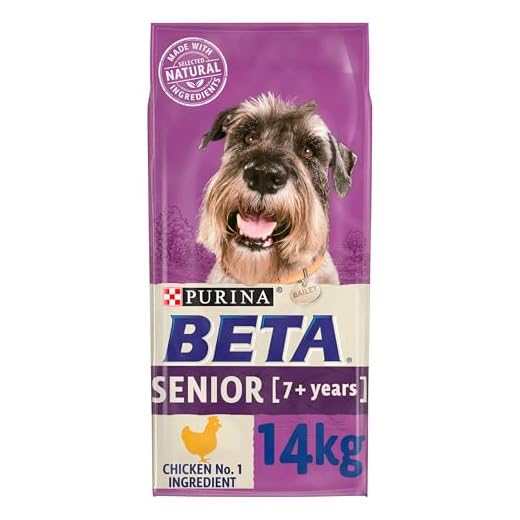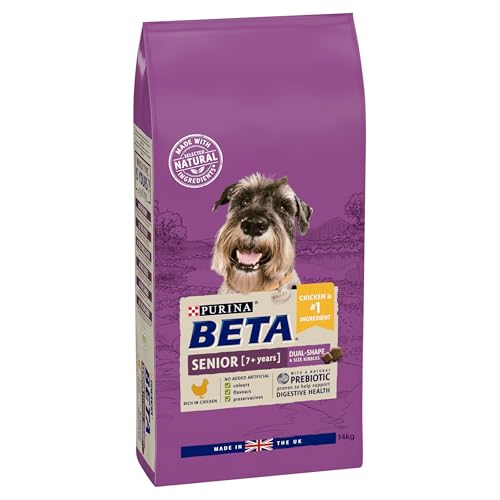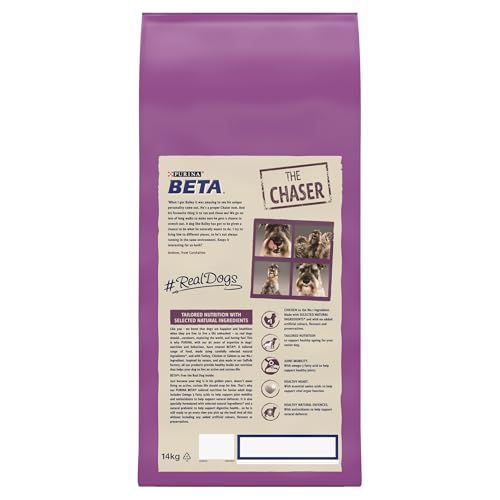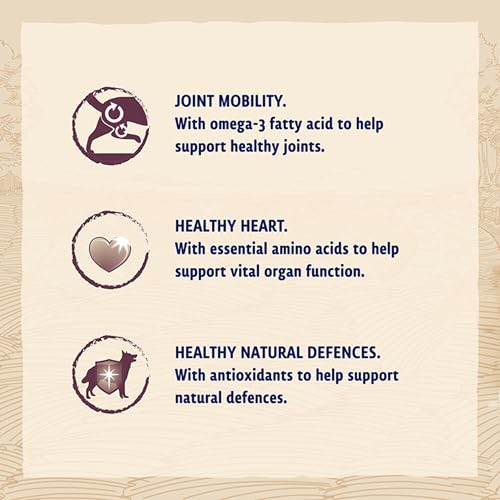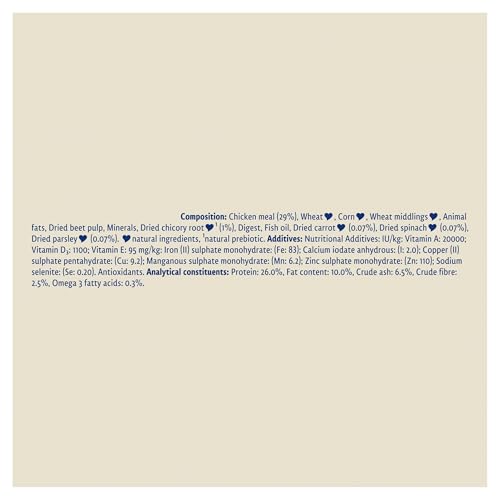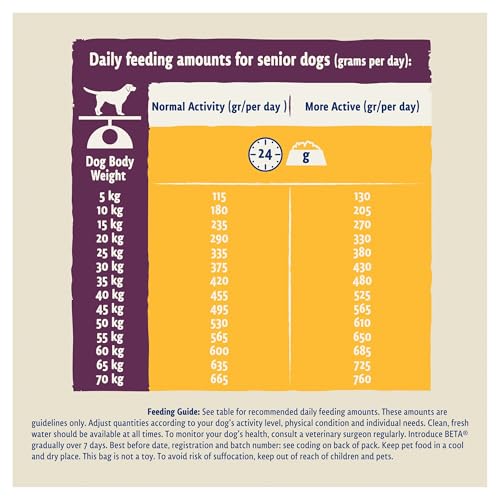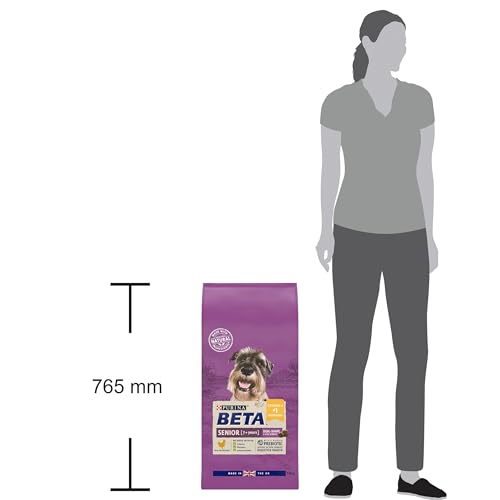




As a dog owner, I’ve always been deeply committed to providing the best care for my furry companion. One of the most important aspects of their well-being is their diet. When it comes to non-active dogs, finding the right dog food is crucial. Unlike their more energetic counterparts, non-active dogs have specific nutritional needs that must be met to maintain their health and happiness. In this article, I’ll share my insights and research on the best dog food options for non-active dogs, drawing from personal experience and expert advice.
Non-active dogs, whether due to age, health conditions, or simply a naturally calm temperament, require a balanced diet that supports their lower energy levels. Overfeeding or providing the wrong type of food can lead to obesity and related health issues. Therefore, it’s essential to choose dog food that is specifically formulated for their unique lifestyle. Through trial and error, and with the guidance of veterinarians, I’ve discovered several brands and types of dog food that cater perfectly to the needs of less active dogs.
In the following sections, I’ll discuss the key nutritional components to look for in dog food for non-active dogs, including protein levels, fat content, and essential vitamins and minerals. I’ll also review some of the top dog food brands that have proven effective for my dog, ensuring they stay healthy and content. Whether you’re a new dog owner or looking to improve your current dog’s diet, this guide will provide valuable insights to help you make the best choice for your non-active furry friend.
Understanding the Nutritional Needs of Non Active Dogs
As a pet owner, I’ve learned that understanding the nutritional requirements of my non-active dog is crucial for maintaining their overall health. Dogs with lower activity levels have different dietary needs compared to their more energetic counterparts. They require a balanced diet that supports their lifestyle without leading to excessive weight gain or other health issues.
Non-active dogs are prone to gaining weight due to their sedentary lifestyle, so it is essential to provide them with food that is lower in calories but still rich in essential nutrients. By doing this, we can ensure they receive all the vitamins and minerals necessary for their wellbeing without consuming excess calories.
Key Nutritional Components for Non-Active Dogs
When choosing food for a less active dog, there are several important factors to consider:
- Protein: Adequate protein intake is vital for maintaining muscle mass and supporting overall body functions. Look for high-quality protein sources like chicken, fish, or lamb.
- Fibre: Fibre helps with digestion and can aid in weight management by promoting a feeling of fullness. Ingredients like sweet potatoes, peas, and whole grains are excellent sources of fibre.
- Fats: Healthy fats are important but should be provided in moderation to prevent weight gain. Opt for sources of omega-3 and omega-6 fatty acids, such as fish oil and flaxseed.
- Vitamins and Minerals: Essential vitamins and minerals support various bodily functions and overall health. Ensure the diet includes a good balance of vitamins A, D, E, and B, along with minerals like calcium and phosphorus.
Portion control is another critical aspect when feeding a non-active dog. It is easy to overfeed them, which can lead to obesity and related health problems. Measuring their food and adhering to feeding guidelines provided on the food packaging can help manage their weight effectively.
Regular vet check-ups are essential to monitor your dog’s health and make any necessary adjustments to their diet. A veterinarian can provide personalised advice based on your dog’s specific needs and lifestyle.
By focusing on these nutritional components and maintaining portion control, we can help our less active dogs stay healthy and happy. It’s all about providing the right balance of nutrients to support their lifestyle while preventing unnecessary weight gain.
Essential Ingredients to Consider in Food for Less Active Dogs
When it comes to feeding a less active dog, choosing the right ingredients is crucial for maintaining their health without adding unnecessary calories. A sedentary lifestyle can lead to weight gain and related health issues if their diet isn’t appropriately managed. Hence, selecting food with the right balance of nutrients becomes essential.
In my experience, certain ingredients stand out when it comes to formulating a diet for dogs with lower activity levels. These components help ensure that the dog remains healthy, maintains an ideal weight, and receives all necessary nutrients without excess energy intake.
Key Ingredients for a Balanced Diet
- High-quality Protein Sources: Even though less active dogs may require fewer calories, high-quality protein remains essential for muscle maintenance and overall health. Look for foods that list lean meats like chicken, turkey, or fish as the primary ingredient.
- Low Glycemic Carbohydrates: Ingredients such as sweet potatoes, lentils, and brown rice provide steady energy release without spiking blood sugar levels. These carbs help keep your dog feeling full longer and reduce the risk of obesity.
- Healthy Fats: Incorporating sources of omega-3 and omega-6 fatty acids, such as flaxseed, fish oil, and chicken fat, supports skin and coat health. These fats are crucial for reducing inflammation and maintaining overall well-being without adding excessive calories.
- Fibre-rich Ingredients: Dietary fibre is essential for digestive health, especially for less active dogs who may have slower digestion. Ingredients like pumpkin, beet pulp, and chicory root can promote regular bowel movements and prevent constipation.
- Antioxidant-rich Vegetables and Fruits: Ingredients such as blueberries, carrots, and spinach provide vital vitamins and antioxidants. These help support the immune system and prevent cellular damage, ensuring your dog stays healthy.
- Joint-supporting Nutrients: For less active dogs, particularly seniors, joint health is a significant concern. Ingredients like glucosamine and chondroitin can help maintain joint mobility and comfort.
By focusing on these key ingredients, you can ensure your less active dog receives a balanced, nutritious diet that supports their specific needs. It’s always best to consult with a veterinarian to tailor the diet to your dog’s individual health requirements.
Best Brands Offering Quality Dog Food for Sedentary Dogs
When it comes to providing nutrition for our less active furry friends, choosing the right dog food is essential. Sedentary dogs have different dietary needs compared to their more active counterparts, and it’s crucial to find food that caters specifically to those requirements. Overfeeding can lead to obesity and other health issues, so finding a brand that offers balanced, low-calorie options is key.
Through my own experience and research, I’ve discovered several brands that stand out for their quality ingredients and specialised formulas designed for less active dogs. These brands not only focus on maintaining a healthy weight but also ensure that dogs get the necessary nutrients for their overall well-being.
Recommended Brands for Less Active Dogs
-
Hill’s Science Diet – Known for their scientifically-backed formulas, Hill’s Science Diet offers a variety of options for less active dogs. Their “Light” range is specifically designed to help manage weight without compromising on essential nutrients.
-
Royal Canin – With a reputation for breed-specific nutrition, Royal Canin also provides tailored solutions for dogs with lower activity levels. Their “Weight Care” line is formulated to support a healthy metabolism and maintain muscle mass.
Trending NowSkinner’s Field & Trial Complete Dog Food 15kgNutritiously balanced for less active dogs.A complete dog food formulated for dogs with moderate activity, this product includes joint aid and is made with natural ingredients for overall wellbeing. -
Nutro Natural Choice – This brand emphasises natural ingredients and offers a “Healthy Weight” formula that is lower in calories and higher in fibre. It’s a great choice for dog owners who prefer more natural food options.
-
Blue Buffalo – Known for their holistic approach, Blue Buffalo’s “Healthy Weight” line is packed with high-quality proteins and wholesome grains. Their recipes include LifeSource Bits, which are a blend of antioxidants, vitamins, and minerals to support overall health.
-
Wellness Core – Focused on grain-free and protein-rich diets, Wellness Core offers a “Reduced Fat” formula that is ideal for less active dogs. This formula helps in maintaining a healthy weight while providing all the necessary nutrients.
These brands have proven to be reliable choices for many dog owners, ensuring that even the most sedentary pets stay healthy and happy. Always consult with your veterinarian before making any changes to your dog’s diet to ensure that it meets their specific needs.
Nutritious Homemade Meals for Less Active Dogs
Providing your less active dog with balanced, homemade meals can be a rewarding way to ensure they get the nutrients they need without unnecessary fillers. Homemade dog food allows you to control the quality and quantity of the ingredients, tailoring meals to your pet’s specific dietary needs.
When preparing meals for a non-active dog, it’s crucial to focus on lean proteins, healthy carbohydrates, and a variety of vegetables. This ensures your dog maintains a healthy weight and gets all the necessary vitamins and minerals.
Recipe Ideas for Your Non-Active Dog
Here are some simple yet nutritious recipes that can cater to the dietary needs of a less active dog. These recipes are designed to be easy to prepare and use ingredients commonly found in most kitchens.
Chicken and Vegetable Medley
- Ingredients:
- 1 cup of boiled chicken breast, shredded
- 1/2 cup of brown rice, cooked
- 1/2 cup of carrots, diced
- 1/2 cup of peas
- 1 tablespoon of olive oil
- Instructions:
- Boil the chicken breast until fully cooked, then shred it into small pieces.
- Cook the brown rice according to the package instructions.
- Steam the carrots and peas until tender.
- Combine all the ingredients in a large bowl and mix well.
- Add olive oil and stir to ensure even distribution.
- Let it cool before serving to your dog.
Beef and Sweet Potato Delight
- Ingredients:
- 1 cup of lean ground beef, cooked
- 1 cup of sweet potato, boiled and mashed
- 1/2 cup of green beans, chopped
- 1/2 cup of apple, finely chopped (ensure no seeds)
- 1 tablespoon of flaxseed oil
- Instructions:
- Cook the ground beef thoroughly, draining off any excess fat.
- Boil the sweet potato until soft, then mash it.
- Steam the green beans until tender.
- Mix all the ingredients in a bowl.
- Add the chopped apple and flaxseed oil, stirring well to combine.
- Allow the mixture to cool before feeding it to your dog.
These recipes are excellent for providing a balanced diet to your less active dog, ensuring they receive sufficient protein and vitamins without excess calories. Always consult with your vet before making any significant changes to your dog’s diet, especially if your dog has specific health conditions.
How to Transition Your Dog to a New Diet Safely
Switching your dog’s diet requires careful planning and patience to ensure their digestive system adjusts smoothly. Whether you’re changing to a healthier option or accommodating specific dietary needs, a gradual transition is crucial to avoid gastrointestinal upset and other health issues.
To make the transition as seamless as possible, it’s important to follow a structured approach. Below, I outline the steps and considerations that have worked well for me and many other dog owners.
Steps to Gradually Introduce a New Diet
First and foremost, take your time with the transition. A slow and steady approach can make a significant difference in how well your dog adapts to their new food. Here’s a detailed plan to follow:
- Day 1-3: Mix 75% of the old food with 25% of the new food.
- Day 4-6: Adjust the mixture to 50% old food and 50% new food.
- Day 7-9: Increase the new food to 75%, with the remaining 25% being the old food.
- Day 10 and beyond: Serve 100% of the new food.
During this period, observe your dog closely for any signs of digestive distress, such as vomiting, diarrhoea, or constipation. If any of these symptoms occur, consider extending each phase of the transition process.
Monitor Your Dog’s Response
It’s essential to pay attention to your dog’s overall health and behaviour during the diet change. Look for improvements in their energy levels, coat condition, and stool quality. Positive changes in these areas can indicate that the new diet is suitable for your dog.
If you notice any adverse reactions, consult your veterinarian immediately. They can provide guidance and possibly suggest alternative food options that might be better suited to your dog’s needs.
Maintain Consistency and Routine
Consistency is key when it comes to feeding schedules. Stick to regular meal times to help your dog adjust to the new diet. Additionally, avoid giving too many treats or table scraps during the transition period, as these can interfere with the process.
In conclusion, transitioning your dog to a new diet can be a smooth process with proper planning and patience. By following a gradual introduction and monitoring your dog’s response, you can ensure a healthy and happy dietary change.
Common Mistakes to Avoid When Feeding Non Active Dogs
Feeding a non-active dog requires careful consideration to ensure they remain healthy without gaining excess weight. It’s easy to make mistakes that can lead to health issues, so it’s important to be aware of common pitfalls.
One major error is overfeeding. Since non-active dogs burn fewer calories, their food intake should be adjusted accordingly. It’s tempting to stick to the same feeding routine, but without regular activity, this can quickly lead to obesity.
Avoid These Feeding Mistakes
- Ignoring Portion Control: It’s crucial to measure out your dog’s food instead of eyeballing it. Following the guidelines on the food packaging can help, but you should also consult with your vet for personalised advice.
- Feeding High-Calorie Treats: Treats are a major source of extra calories. Choose low-calorie options and limit the number of treats given. Remember, treats should not make up more than 10% of your dog’s daily caloric intake.
- Providing Table Scraps: Feeding your dog from your plate can introduce unhealthy fats and sugars into their diet. Stick to their formulated dog food to maintain balanced nutrition.
- Not Adjusting for Age and Health: Older dogs and those with health conditions often require special diets. Ensure you choose food that meets these specific needs, and adjust portions as your dog ages or if their health status changes.
Another mistake is failing to monitor your dog’s weight regularly. Weigh your dog monthly and adjust their food intake if you notice weight gain. Prevention is much easier than trying to shed extra pounds later on.
Lastly, avoid switching foods too frequently. Stability in diet helps maintain digestive health. If a change is necessary, transition gradually to avoid gastrointestinal issues. Being mindful of these mistakes can help keep your non-active dog healthy and happy.
Expert Tips on Maintaining a Healthy Weight in Non Active Dogs
Keeping your non-active dog at a healthy weight is essential for their overall well-being. Here are some expert tips to help you maintain your furry friend’s weight:
- Monitor food intake: Be mindful of portion sizes and avoid overfeeding. Consult with your veterinarian to determine the appropriate amount of food for your dog’s size, breed, and activity level.
- Choose high-quality, low-calorie food: Opt for dog food specifically formulated for non-active dogs. Look for products that are lower in fat and calories but still provide essential nutrients.
- Limit treats: While it’s tempting to give treats as rewards, excessive treats can contribute to weight gain. Choose healthy, low-calorie treats and use them sparingly.
- Provide regular exercise: Even though your dog may not be very active, it’s important to incorporate some form of physical activity into their routine. Short walks or gentle play sessions can help prevent weight gain and keep your dog mentally stimulated.
- Monitor weight regularly: Keep track of your dog’s weight and body condition score to ensure they are staying within a healthy range. If you notice any significant changes, consult with your veterinarian.
By following these expert tips and providing your non-active dog with a balanced diet and appropriate exercise, you can help them maintain a healthy weight and live a happy, fulfilling life.
Best Dog Food For Non Active Dogs
Features
| Part Number | 12231689 |
| Model | 12531980 |
| Color | transparent |
| Release Date | 2014-05-23T00:00:01Z |
| Size | 1 count (Pack of 1) |
Features
| Part Number | 8710255174761 |
| Model | 8710255174761 |
| Size | 12 kg (Pack of 1) |
| Language | English |
Features
| Part Number | 10753 |
| Model | 10753 |
| Size | 10 kg (Pack of 1) |
| Language | French |
Features
| Part Number | FTJA15 |
| Model | 02SKFTMAP15 |
| Release Date | 2014-06-30T00:00:01Z |
| Size | 15 kg (Pack of 1) |
| Language | English |
Features
| Is Adult Product | |
| Release Date | 2025-04-14T00:00:01Z |
| Language | English |
| Number Of Pages | 240 |
| Publication Date | 2025-04-14T00:00:01Z |
Features
| Part Number | 501010 |
| Model | 501010 |
| Release Date | 2019-12-23T00:00:01Z |
| Size | 14 kg (Pack of 1) |
Features
| Part Number | 3182550731386 |
| Model | 3182550731386 |
| Is Adult Product | |
| Release Date | 2012-12-04T00:00:01Z |
| Size | 12 kg (Pack of 1) |
| Language | French |
| Price history for ROYAL CANIN Veterinary Diet Dog Food 12kg | |
|---|---|
|
Latest updates:
|
|
Features
| Part Number | 0000 |
| Model | 0000 |
| Warranty | 45 Day Money Back |
| Size | Single Pack |
| Price history for NutriPaw Probiotic Digestive Treats for Dogs | |
|---|---|
|
Latest updates:
|
|
Q&A:
What is the best dog food for non-active dogs?
The best dog food for non-active dogs is typically a formula with lower calorie content and higher protein levels to maintain muscle mass without causing weight gain.
What should I look for when choosing dog food for a non-active dog?
When selecting dog food for a non-active dog, look for a formula that is labelled as “light” or “weight management” to ensure it has fewer calories. Also, check for higher protein content and lower fat levels to support lean muscle maintenance while preventing excessive weight gain.

